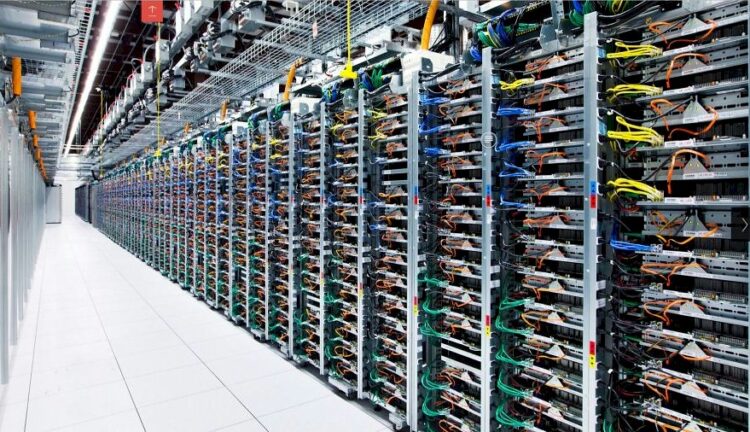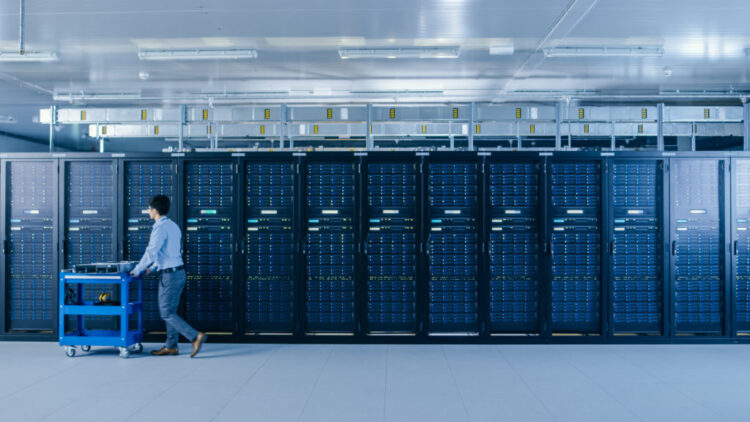In today’s digital age, businesses of all sizes are generating massive amounts of data, and the need for secure and reliable data storage and processing is more critical than ever. Colocation in database hosting has emerged as a robust solution to meet this demand.
In this comprehensive guide, we’ll explore the world of colocation, shedding light on its benefits, considerations, infrastructure, pricing, security, and much more. By the end of this article, you’ll have a clear understanding of how colocation can optimize your IT infrastructure.
1. Introduction to Colocation in Data Center Hosting
When referring to hosting data centers, the term “colocation” describes the practice of renting physical space, electricity, cooling, and network connectivity inside a data center. Businesses can use facilities to house their servers, storage, and networking hardware instead of maintaining their own data centers, taking advantage of the shared infrastructure and services offered by the database operator.
Colocation offers a middle ground between traditional on-premises data centers and fully managed cloud solutions, making it a valuable option for businesses seeking efficient IT solutions. In locations like Colocation Melbourne, it allows businesses to maintain control over their hardware and software while outsourcing the complexities of infrastructure management.
This strategic approach to data center hosting not only ensures reliability and security but also offers businesses the flexibility to adapt to their evolving needs, all within the dynamic landscape of technology in a bustling city like Melbourne.
2. Benefits of Colocation for Businesses

For enterprises, colocation has several benefits:
-
Cost Savings
One of the primary benefits of colocation is cost savings. Building and maintaining an in-house database can be prohibitively expensive. Providers distribute these costs among multiple clients, making it a more cost-effective option.
-
High Reliability
Data centers are designed for high availability and redundancy. Facilities are equipped with backup power sources, advanced cooling systems, and robust physical security measures, ensuring uninterrupted operation.
-
Scalability
Scalability provided by colocation enables companies to grow their IT infrastructure as necessary. This flexibility is especially beneficial for businesses that are expanding or have varying demands.
-
Improved Connectivity
Information centers are often strategically located in areas with robust network connectivity, offering low-latency connections and high-speed internet access.
3. Key Considerations Before Choosing Colocation
Before selecting a provider, businesses should consider several factors:
-
Location
The proximity of the data center to your business can impact latency and accessibility. Choose a location that suits your needs, whether it’s for disaster recovery, facts accessibility, or compliance requirements.
-
Redundancy
Evaluate the level of redundancy the facility offers. Redundant power, cooling, and network connections are crucial for ensuring uptime.
-
Security
Assess the physical and digital security measures in place. Look for features like biometric access controls, surveillance cameras, and fire suppression systems.
-
Service Level Agreements (SLAs)
Review the SLAs provided by the provider. These agreements outline the expected levels of uptime, support, and maintenance.
4. Understanding Data Center Infrastructure

Modern infrastructure is present in facilities:
-
Power and Cooling
To guarantee servers keep running even during outages or severe weather, data centers include backup power sources and cutting-edge cooling systems.
-
Networking
Facilities provide high-speed internet connectivity and robust networking infrastructure, enabling efficient information transfer and low-latency connections.
-
Rack Space
Clients can rent rack space to house their servers and networking equipment. These racks are designed to maximize space utilization and airflow.
-
Physical Security
Strict security measures are used in data centers, including biometric access restrictions, security officers on duty around the clock, and surveillance cameras.
5. Cost Factors and Pricing Models
The cost can vary based on several factors:
-
Space and Power
Providers charge based on the amount of rack space and power consumption. Costs can increase as your infrastructure grows.
-
Bandwidth
The amount of data transfer or bandwidth required influences pricing. High bandwidth demands may result in higher costs.
-
Service Levels
Providers offer various service levels, from basic rack rental to fully managed services. The level of support you choose will impact pricing.
6. Security Measures in Facilities

Security is a paramount concern in facilities:
-
Physical Security
To prevent unauthorized access, data centers use rigorous access restrictions, video surveillance, and security guards.
-
Network Security
Providers implement firewalls, intrusion detection systems, and DDoS mitigation to safeguard client data and infrastructure.
-
Compliance
Industry-specific compliance requirements, such as HIPAA or PCI DSS, are frequently followed by cloud computing services, assuring the protection and privacy of sensitive data.
7. Redundancy and Uptime in Hosting
Redundancy is a key feature of hosting:
-
Redundant Power
To guarantee continuous operation, data centers feature several power sources, such as backup generators and uninterruptible power supply (UPS).
-
Network Redundancy
Providers maintain redundant network connections to prevent downtime in the event of a network failure.
-
Uptime Guarantees
Many providers offer uptime guarantees in their SLAs, ensuring that clients’ infrastructure remains accessible and operational.
8. Scalability and Flexibility in Services

Scalability and flexibility are benefits:
-
Easy Expansion
Clients can easily add or remove servers and equipment as their needs change, without the hassle of building or expanding their own data center.
-
Hybrid Solutions
Businesses can combine colocation with cloud services for a hybrid approach, optimizing resource allocation.
-
Customization
Providers often allow clients to customize their infrastructure to meet specific requirements, ensuring a tailored solution.
9. Colocation vs. Cloud Hosting: A Comparison
The two well-liked choices of colocation and cloud hosting, both have benefits:
-
Control vs. Convenience
While cloud hosting gives the ease of fully managed services, connectivity allows more control over hardware and software.
-
Predictable Costs vs. Pay-as-You-Go
Cloud hosting may have changeable prices dependent on consumption, although connectivity frequently has known monthly fees.
-
Security and Compliance
Colocation allows for greater control over security and compliance, making it suitable for highly regulated industries.
10. Real-World Colocation Success Stories

To illustrate the benefits, let’s explore a few real-world success stories:
-
Dropbox
Dropbox initially relied on cloud services but later transitioned to colocation to gain more control over its infrastructure, leading to improved performance and cost savings.
-
Reddit
Reddit leverages colocation to ensure high availability and low latency for its millions of users, customizing its infrastructure to meet its unique needs.
-
Financial Institutions
Many financial institutions use colocation to host trading platforms, taking advantage of data center proximity and low-latency connections for faster transactions.
Conclusion
Businesses have access to a strong infrastructure solution for dependable, scalable, and secure colocation in data centers. They may optimize their IT operations by carefully evaluating location, security, redundancy, and scalability, as well as comparing it to alternative hosting choices like cloud hosting. Real-life success stories demonstrating advantages make it evident that this hosting choice has a promising future in the rapidly changing world of price management and technology.







